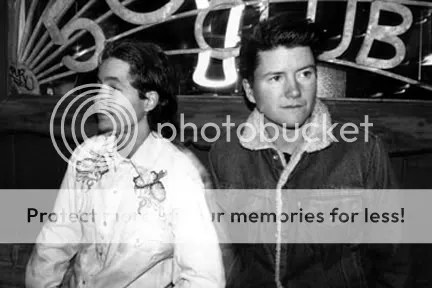Though overall I didn’t respond to By Hook or By Crook (Harry Dodge and Silas Howard, USA, 2001) nearly as much as I was hoping or expecting to, it’s indeed an important film in its own way and just about the only film I can think of that allows the main characters not only occupy an ambiguous space in regards to both gender and sexuality, but also has a narrative that shows no interest in forcing or demanding distinctions be made. Which on paper it may not sound particularly notable, but experiencing it through the film often feels nothing less than radical. One need only think of the other films dealing with transgender characters, such as Boys Don’t Cry, whose “big reveal” to substantiate biological gender for other characters and the audience serve as climactic moments. By Hook or By Crook interests lie decidedly elsewhere, and the film is all the more interesting because of it.
 Also adding to the charm, for me, was its local production which showcases sides of the city that don’t often get glimpsed on film, particularly the Mission District (depicted as some kind of genderqueer oasis) and the Lex (that is, the Lexington Club, the city’s most famous lesbian bar) with nary a glimpse of the stereotypical SF–the Golden Gate Bridge, a streetcar, the Seven Sisters–to be found. But not only is it an alternative view of the city but practically an alternative universe in and of itself—one of the most insightful observations of the film I’ve come across is how within the film it’s the non-queer world that is depicted as skewed and bizarrely unnatural.
Also adding to the charm, for me, was its local production which showcases sides of the city that don’t often get glimpsed on film, particularly the Mission District (depicted as some kind of genderqueer oasis) and the Lex (that is, the Lexington Club, the city’s most famous lesbian bar) with nary a glimpse of the stereotypical SF–the Golden Gate Bridge, a streetcar, the Seven Sisters–to be found. But not only is it an alternative view of the city but practically an alternative universe in and of itself—one of the most insightful observations of the film I’ve come across is how within the film it’s the non-queer world that is depicted as skewed and bizarrely unnatural.
The film is clearly a labor of love for Silas Howard and Harry Dodge, the non-filmmakers who wrote, directed, raised the funds for and then starred in the film, and represents a kind of post-New Queer Cinema return to no-budget independent filmmaking, and it’s ramshackle, “do it yourself” quality is certainly a massive part of its power and its charm.
